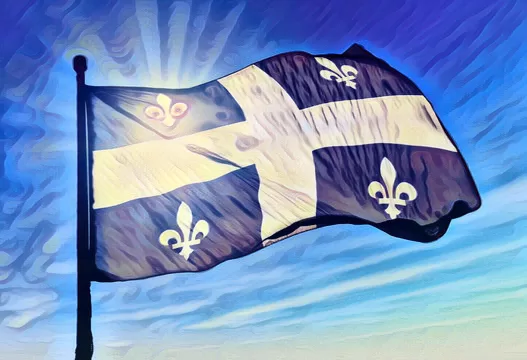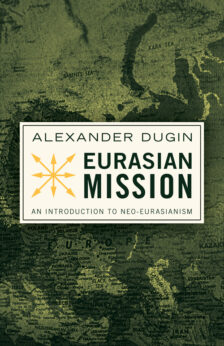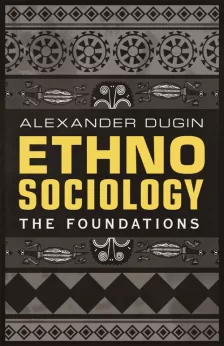Quebec remains a unique region of the North American continent, being the only place where a White and French-speaking majority has survived to this day from its foundation as a French colony in 1608 by Samuel de Champlain on the banks of the St Lawrence. As a nation in the making, and the birthplace of one of the most successful non-violent independence movements in the 20th century, it remains perplexing that Quebec is not a better known aspirational example for the wider pan-European national movement in North America. While the South is often looked back to nostalgically by many White Americans as an inspiration for what separatism can accomplish, the example of the Civil War South is perhaps not particularly relevant to the 21st century situation as the minoritization of White Americans is becoming more undeniable daily, yet where any violent secession movement is unlikely to gain much legitimacy in the eyes of ‘normie’ Whites while potentially being ruthlessly crushed with military force by a hostile American federal government if this were to happen. As such, White Americans should perhaps look to a more contemporary example in the Quebec sovereignty movement for a more relevant source for their own aspirations for a separate ethnostate for their own people. In this article, I will look at both the successes and failures of the Quebec independence so that lessons can be learned from the potential of an independent Quebec, which can serve for the breaking up of post-national North American countries such as Canada and the United States. But first, some history.
The rise of the contemporary independence movement in the 1960s in the context of the post-WWII “Quiet Revolution” that swept the province that decade was the fuel that gave birth to the Quebec independence movement. This was accompanied by a trend of secularization as Quebecers left the church en masse while a renewed nationalism in the 1960s, propelled by young French-speaking Quebecers, began questioning the subordinated place that French Quebecers had in the Anglo-dominated economy of that era and before. While this new, secular nationalism broke away from Quebec’s deeply religious and Catholic past, this new nationalism was not so much of a rupture from that past but a continuation of certain political trends that can be traced to the inter-war era where a deep alienation of French Canadians from their English Canadian “brothers” was propelled to the forefront by the conscription crisis of 1917, where many French Canadians opposed further involvement in the First World War and opposed the conscription of more young Canadians for a war and an empire that they did not identify with. This led to violent riots in Quebec City in 1917, which were then violently suppressed by the Canadian army but a fuel had been lit, never to be stamped out afterwards.
A cultural rupture and mental separation between French Canadians and English Canadians had been manifested by the deep divisions over the issue of conscription which led many French Canadians to rethink their place within the Canadian Confederation. Even prior to this mental rupture between English and French Canadians, there were lone intellectual voices such as Lionel Groulx, Henri Bourassa and Jules-Paul Tardivel, who can be seen as the forefathers of the modern independence movement even if they did not openly advocate such an option in their writings. However, by questioning the subordinated place of Quebec within the Canadian Confederation and understanding full well the daunting prospect of a French and Catholic minority in an English and Protestant majority country through the threat of assimilation and dissipation of its French identity, these thinkers gave full expression to the worries and concerns of the French Canadian “race” in the 19th-century sense of a distinct ethnicity. Still, independence from Canada would remain a fringe idea within Quebec political discourse until the 1960s even when its roots had been laid earlier, demonstrating the importance of having high-caliber intellectuals for any political movement that seeks to make real changes to the political discourse and thus shift the Overton Window to ideas that would have once been taboo.
With that out of the way, what are the prospects of independence for Quebec in the 21st century? While the movement has long been dormant since the 1995 referendum, which was only narrowly defeated by less than 1%, recent polls from reputable mainstream polling has indicated an increase in support to around 38%. However, unlike in the past, young French Quebecers are no longer the torchbearers of the independence movement, with 49% now being against the notion while the Quebec boomers that had carried its torch in their youth remain the most staunchly pro-independence. Clearly, much work remains to be done to reverse this. Yet, it is not an entirely hopeless cause. Fortunately, for Quebec, its racial demography remains healthy by Canadian and North American standards, with the province still remaining 82% White as of the most recent Canadian census of 2021. This is significantly higher than any other major Canadian province or American state and while it is likely that in the coming years that percentage will decline, it will remain higher than most Canadian provinces even as its White population ages out.
This also means that the White Francophone vote remains crucial to winning any provincial election and cannot be ignored since Quebecers have been known to vote in a bloc-like manner in federal elections as well as in provincial ones. Simply put, no party can win an election in Quebec by alienating its White Francophone majority as the Liberal Party of Quebec has learnt to its detriment as it has become relegated to the island of Montreal where most of Quebec’s Anglophone and Allophone (neither French nor English-speaking) immigrants reside. While the Parti Québécois (PQ), the main separatist party, has not fared so well in recent provincial elections, they are now the second choice of the Francophone majority after the governing soft “nationalist” CAQ under Premier François Legault which has taken a policy of “Quebec First,” seeking more provincial autonomy without outright advocating independence. In other words, they are pursuing a strategy of independence through other means and through gradualist measures by which Quebec could eventually become de facto independent without the need for an official referendum. It should be noted that Legault and the CAQ was only able to win the last two elections in the province by winning over ex-PQ voters who had switched to the CAQ in 2018 after the PQ abandoned its raison d’être of seeking independence. The PQ has learnt from this mistake and has gone back to its independence first strategy as well as attempting to woo back the crucial Francophone nationalist vote. And outside of the Francophone media in Quebec, it has not been mentioned that the PQ has also advocated the closure of the Roxham border crossing (now closed) to refugees and to limit immigration to the province to 35,000 per year, the lowest of all the major parties in the National Assembly of Quebec. Similarly, it has increasingly tied immigration issues with the cause of independence, correctly stating that Quebec’s ability to control its immigration intake is ultimately a question of gaining the independence that would give Quebec full power over its immigration policy.
With this out of the way, I consider the likelihood of Quebec gaining independence to be higher now than in the last 20 years with the aforementioned recent polling already indicating an increase in support for the idea after a decade or more where independence had become stale and moribund. A renewal of the independence movement is now underway. Multiple factors have led to this increase in support with one major unstated reason being the changing demographic situation as Quebec’s White Francophone majority has seen a decline in its population, albeit at a slower pace than seen in the English Canadian provinces as a whole. There is an increasing realization of the threat that Quebec could very well disappear without its founding ‘pure laine’ Québécois de souche (White, Catholic and French-speaking Quebecois), thus eventually extinguishing the hopes of an independent Quebec forever.
Among the more militant believers of independence, there is a dawning realization that they might have only one more chance to pursue the dreams of sovereignty as the demographic make-up of the province changes and inevitably against its favor. After two failed referendums in 1980 and 1995, there can only be one final, third referendum and hopefully one where Quebec finally gains its sovereignty and fulfils its national destiny. Furthermore, it is likely that geopolitical crises outside of Quebec will also play a crucial role in the success of a future independence referendum with the rise of China and the withering of the liberal West as a consequence of the decline of the post-war 1945 American world order as it is being challenged by the revisionist states of Russia, China and Iran. The decline of America from superpower status and the Balkanization and potential break-up of the United States, and along with it Canada, will likely be the ultimate outcome of a failed war waged by the United States and its Western as well as Asian vassal states against a rising China. Like in previous world wars, I expect many Quebecois will be vehemently opposed to an all-out war against Russia and China, which Canada will once again be forced to participate as a staunch American ally. This could very well be the straw that breaks the camel’s back of the artificial post-national state of Canada as Quebecers and other Canadians refuse to serve as sacrificial cannon fodder for another imperialist war not in their interests. And were such a thing to happen, the delusional dreams of Trudeau’s post-national Canadian multicultural liberal statism will burn and die in the ash-heap of history while the fever nightmares of the post-national globalist elites of White racial ethnostates arising from its ashes will be a reality. Quebec could very well be the first domino to fall in this national revolutionary wave of ethnic self-determination and the breaking up of liberal states in North America and throughout the West. Certainly, it would not be the last.
Articles cited:
“Why Quebec Sovereignists are Looking Up”: https://www.politico.com/news/2023/03/10/quebec-sovereignty-polling-00086428
Demographics of Quebec:
https://en.wikipedia.org/wiki/Demographics_of_Quebec
“The Parti Quebecois is standing in second place in a Leger poll for the first time in the last 5 years.” Leger, 10/12/22: https://twitter.com/ElectsWorld/status/1604176379213320192
“Le PQ ramènerait les seuils à 35 000 immigrants par année”:
https://ici.radio-canada.ca/nouvelle/1910931/immigration-parti-quebecois-nombre-limite-plafond-maximum










Great article. Excellent background as well. I never knew that the 1960s saw a lot of Québecois leaving the church in large numbers… And I agree with the author that Quebec is a better model to consider than the Civil War South.
One slight correction: the author states that Quebec’s 82% White demographic is larger than any of the US states. The White populations of West Virginia, Vermont, and Maine are all above 90%. New Hampshire is close, with 89%. And others are higher than 82%, but over, the average White population of most US states is less than 80%.
https://usafacts.org/data/topics/people-society/population-and-demographics/our-changing-population/state/west-virginia/?endDate=2021-01-01&startDate=2010-01-01
I am surprised the WV “white rate” is so high! And it is pretty inexpensive to live, comparatively.
Ah, thanks for the correction! I didn’t have access to the most recent US census so I might have made my statement with out of date demographic information. I was under the impression though that most major US states had an under 80% white majority such as in NY, California (the lowest percentage of whites overall) and Texas. There are a few states that have a higher percentage of whites. Most of those, as you’ve kindly remarked are in the New England region. I’ve been to Vermont (lovely place) and can attest its very white.
I would also add, that if you removed Montreal from Quebec, the percentage of whites would actually be higher. It would be something like 90-95% white if Montreal was excluded because non-white immigrants are massively concentrated in Montreal with 85% of all immigrants arriving and staying in Montreal. Even then, Montreal’s suburban regions are still relatively white at around 73%.
My guess is that’s exactly what it’s going to take if Quebec nationalists are serious. Cede the Ottawa-to-Montreal corridor to Ontario, and call the rest the independent country of Quebec. I realize that stretch is more than half of the province’s current population, but it’s a sacrifice worth making.
After two failed referendums, and demographic momentum slipping away, Quebec nationalists need to get creative. And not only for their own sake, as you allude in the article, a lot of others around North America are counting on them.
Is there an armed tendency of Quebec separatists now, or is that all something of the past?
Armed militancy these days is far less common than it was in the 60s and 70s. The FLQ was the most famous example of this although forms of violent direct action was quite common among all separatists during that period as well such as violent strikes, armed robberies, arsons on government buildings, etc. The October Crisis of 1970 basically crushed this armed tendency in the separatist milieu when Trudeau declared martial law over Quebec (the only time in Canadian history that martial law was ever declared during peacetime). There was however, a small and rather non-violent separatist militia that was active in the 2000s whose name I’ve forgotten but which is likely today defunct.
The only possibility I could see where armed separatist tendencies would emerge again would be if we had a third referendum in which the Yes vote carried the day but which the federal government refused to recognise and then sent in the Canadian military to suppress. This would definitely enflame tensions within Quebec and would not go unanswered. You could then very well see something akin to the Irish Troubles with IRA-like cells operating as a low level insurgency throughout Quebec under such a scenario. The aftermath of the October Crisis still leaves a bitter aftertaste here even decades after the event that the Bloc Quebecois condemned the use of the Emergencies Act (a watered down version of the War Measures Ac that was used in 1970) during the Great Trucker Convoy of 2022.
Do Quebec nationalists have a connection with the French Right? France has the most intelligent and advanced pro-European revolutionary theory. They should connect to that current hardcore. We need an Archeofuturist Quebec!
Historically, yes. Quebec nationalist thinkers in the interwar era were deeply influenced by certain right-wing French Catholic integralist thinkers like Maurras, Sorel, Drumont and Barrès. Action Française was also active in Quebec in this period, founded by a few Quebec students who had come back from Paris and were inspired by the direct action of that group.
In the 60s, we also saw a rise of a more national-liberationist nationalism inspired by Maoism, Third-worldism and the Palestinean resistance movement. The FLQ also trained with the PLO in Jordan in this period. This was prior to the 1970 October Crisis that forced its surviving members to flee to Cuba.
Nowadays, Quebec nationalism is seen as somewhat insular but there is still some connections and interactions with the French right. You can easily find de Benoist and Faye’s books in small bookshops in Montreal. Their works are familiar in certain nationalist circles. On a higher level, Alain Soral had visited Quebec back in 2012 and had some positive comments to make on it, calling it “France preserved in a time capsule in the New World.” A similar remark to Tocqueville’s who visited French Canada as a side-trip to the United States, who called it “the ancien regime preserved in the New World.”
Our friend Serge Ayoub was banned many times from traveling to Quebec but eventually was allowed in. Thank you for this additional information, really interesting and valuable!
Quebec is certainly its own nation from language to culture. Even the women are more beautiful. Quebec nationalists need to purge their internal liberals and leftists and plow forward. They could become a beacon of hope in North America.
The FLQ are wild. Check out their manifesto!
Cool flag, even if the star is red!